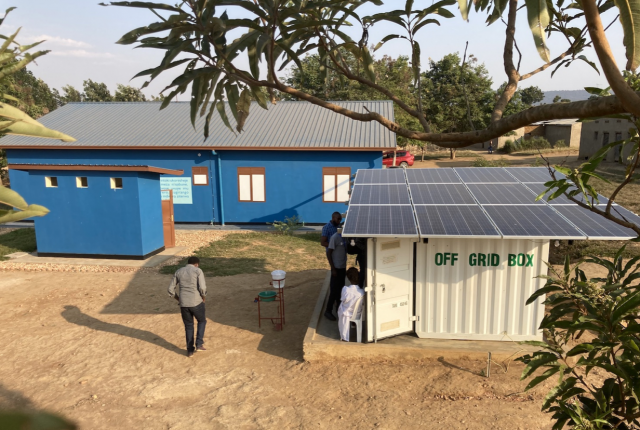We present a case study of successful uptake of a productive use of electricity (PUE) co-located at an off-grid clinic powered by OffGridBox in Rwanda. We develop a techno-economic analysis of the standardized, modular, and redeployable power supply technology, characterizing cost components, revenue considerations, and key challenges. We present a technical characterization of system utilization based on remote monitoring of electricity consumption, power reliability, and power quality at a PUE intervention site, estimating system reliability at 81% over the study period. Lastly, we characterize socio-economic costs and benefits from the productive user’s perspective drawing on mixed-method interviews. We find that relatively low amounts of electricity consumption (10–30 kWh per month) command a high revealed willingness to pay (~$3 per kWh) for the solar-powered displacement of diesel-based welding, significantly improving the unit economics of the deployed system. This analysis and data provides a resource model for the standardization of mini-grid hardware, performance and cost frameworks, and metrics to assess off-grid, under-grid and ultimately grid interactive distributed generation systems. These models are urgently needed to meet the UN Sustainable Development Goal SDG 7 commitment to achieve universal energy access by 2030.
PublicationJournal Article Productive uses of electricity at the energy-health nexus: Financial, technical and social insights from a containerized power system in Rwanda
Published:
January 10, 2023
Author(s):
Publication Type:
Journal Article
Associated Projects:
Abstract:
